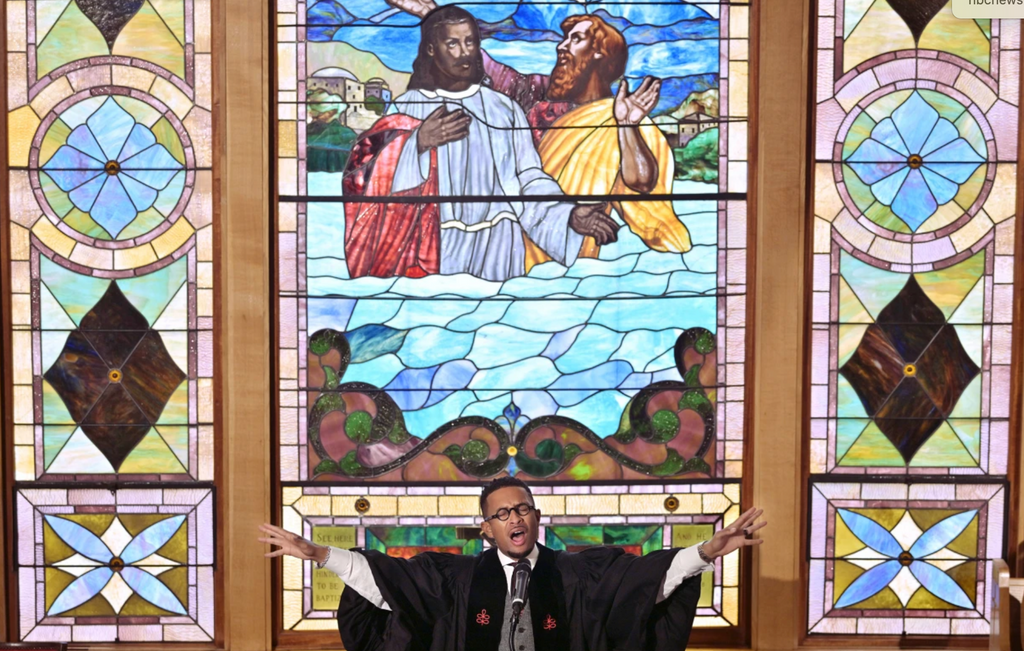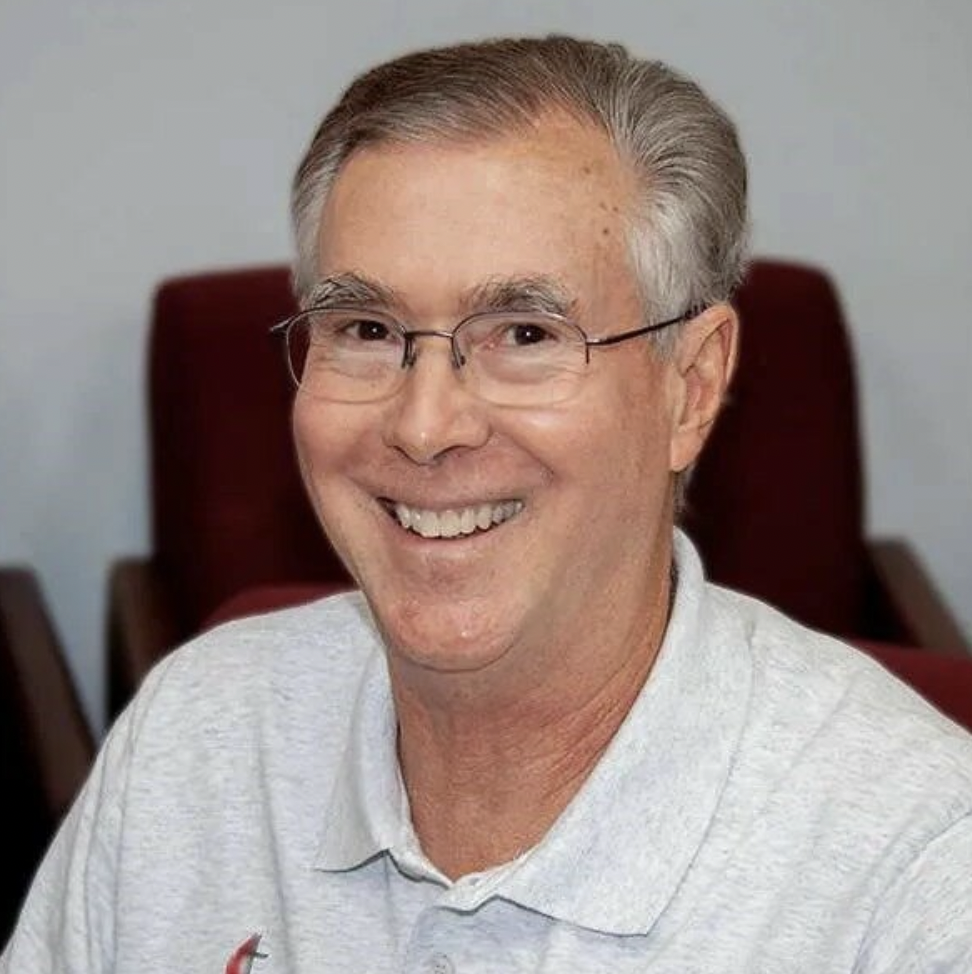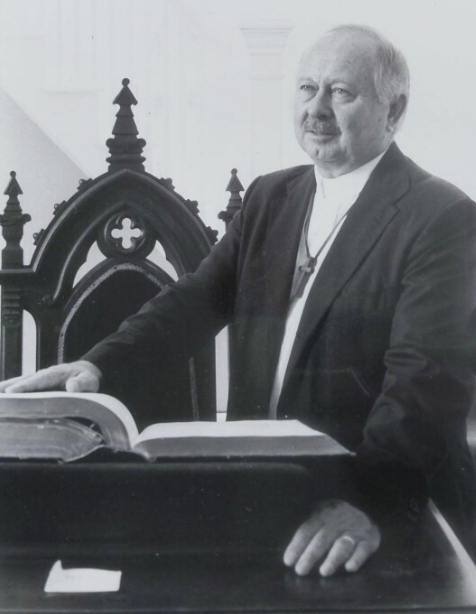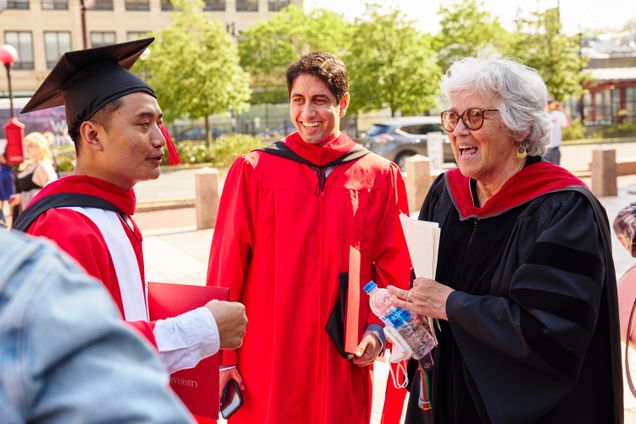Alumni News
Youth & Children’s Minister, Part-Time, Episcopal: Westwood, MA
Youth & Children’s Minister
St. John’s Westwood, an Episcopal parish in Westwood, Massachusetts, seeks a talented and enthusiastic part-time (fifteen hours per week) Youth & Children’s Minister. St. John’s is a warm and growing community that is known for its formation programming and outreach ministries. The church has approximately 200 members, many young families, and a weekly attendance of about 70 during the program year. We run a weekly Sunday School program for K-4th grade students (with an expected roster of 11 children in this coming program year); and monthly middle school and high school classes (with expected rosters, respectively, of 5 and 11 students in this coming program year). Our youth and children’s formation program also includes a confirmation program for teens and nursery care for younger toddlers and infants.
The Youth & Children’s Minister will report to the Rector and works collaboratively with the Rector, with staff including a nursery caregiver, and with other lay leaders, including a roster of at least five parent teacher volunteers, to provide and lead formation for our children and youth.
Duties and responsibilities
The Youth & Children’s Minister shall work for fifteen (15) hours per week during the program year, 44 weeks from mid-August to mid-June, to:
(Nursery, K-4th Grade & Middle School)
1. Recruit and support teacher for the K-4th Grade and Middle School (5th-8th Grade) classes.
2. Plan and organize seasonal outreach service projects for the K-4th Grade program, including the “Souper” Bowl of Caring and Lenten mite boxes.
3. Plan and organize, with the Priest Associate, two special Saturday morning programs: St. Nicholas’ Day and the Path to Easter.
4. Plan and organize the Christmas Pageant.
5. Review and order curricula for the K-4th Grade and Middle School programs.
6. Plan and organize monthly Middle School outreach projects and events.
(High School & Confirmation)
7. Run the High School (9th-12th Grade) program, including teaching the once-a-month class and organizing and leading the once-a month outreach events.
i. Coordinate participation in the yearly CityReach overnight program at St. Paul’s Cathedral, Boston, for the High School program.
8. With the Rector, co-teach the Confirmation Class (which runs every-other year).
(Miscellaneous)
9. Provide resources and supplies for children and youth in all programs (Nursery Care through High School).
10. Supervise and support the staff Nursery Care Provider and Assistant Youth and Children’s Minister positions.
11. Chair and coordinate seasonal meetings of the Christian Formation Committee.
12. Attend Diocesan formation workshops as needed.
13. Report to the Vestry as needed.
14. Provide communications support about the Church School and Youth events to the parish administrator for the weekly eNews.
15. Provide timely and frequent direct communications to parents about the Church School and Youth events.
16. Prepare and submit a budget to the Rector for the following calendar year prior to October 1.
Qualifications
Interested candidates should be grounded in the Christian faith and have a strong interest in working with children and youth. Candidates should respect young people, foster strong relationships, promote inclusion (including for LGBTQIA+ youth), and build community. Candidates should be collaborative and be ready to regularly partner with parents and staff to maintain program excellence and include new families. Candidates should also have:
1. A Bachelor’s degree or higher is preferred.
2. Experience working with youth in a Christian setting.
3. Strong leadership and organizational skills.
4. Excellent interpersonal, communication, and facilitation skills.
Compensation
Compensation to be discussed with the candidate and will vary depending on experience. Flexible work environment and schedule to be discussed with the candidate. Send your résumé and cover letter to:
The Rev. Michael Bousquet at
rector@stjohnswestwood.org
References and a CORI background check will be required for this position.
Catholic Chaplain, Part-Time, Catholic: Middletown, CT
Job Opening: Catholic Chaplain (32 Hour) - Department of Administrative Services
Student Engagement Graduate Assistant, Part-Time: Boston, MA
Reverend Dr. Brandon Thomas Crowley (’12,’19) Shares Story and Vision for Queer-Inclusive Black Churches
The following is an excerpt from the NBC News article "He feared coming out. Now this pastor wants to help Black churches become as welcoming as his own." by The Associated Press, published on May 17, 2024. Click here to read the full article.
"It was daunting when the Rev. Brandon Thomas Crowley, at age 22, replaced a beloved pastor who had ministered to one of suburban Boston’s most famed Black churches for 24 years.
It was more daunting — at times agonizing — to reach the decision six years later, in 2015, that God wanted him to tell his congregation that he was gay.
To his relief, most of the worshippers at Myrtle Baptist Church in Newton, Massachusetts, embraced him. Crowley’s career has flourished, and he has now written a book — “Queering the Black Church” — that he hopes can serve as a guide for other congregations to be “open and affirming” to LGBTQ people rather than shunning them."
Reverend Dr. David Summers (’88) Retires After 30 Years as UMC Pastor
The following is an excerpt from the Sun City West Independent article “Sun City Pastor to Retire in June” by Caryl Jo Dagro, published on May 14, 2024. Click here to read the full article.
"Lakeview United Methodist Church Senior Pastor David (Dave) Summers officially begins his retirement June 23, when he will give his last sermon after more than 30 years of serving in United Methodist churches in Massachusetts, California and Arizona.
“It’s been a joy and privilege to be a United Methodist pastor and now to be able to serve with the people of Lakeview ... my wife and I will miss this church dearly,” said Summers.
In his four years at Lakeview, there are several areas of ministry that have felt important to him. Participating in the I-HELP (Interfaith Homelesss Emergency Lodging Program), Lakeview feeds and houses the homeless Friday and Saturday nights and have seen many “graduate” to self-sufficiency. Strengthening welcoming and connections ministry has encouraged many new visitors to the church and to the online worship ministry, that assists people to build relationships and connections with Lakeview."
Dr. Forrest John Clingerman (’97)
This obituary was originally posted by Witty's Funeral Home and can be found here.
Forrest John Clingerman, 52, passed away April 21, 2024, at his home in Ohio.
Forrest was born January 29, 1972 in Terre Haute, IN, to parents John and Claire (Spaulding) Clingerman. He grew up in the midwest but came to the east coast as a young person with his family.  Forrest graduated from Deerfield Academy, in Deerfield, MA in 1989. He then received his bachelors from Augustana College in Rock Island, Illinois in 1994. It was at Augustana, where he met his wife of 29 years Gail (Pearson) Clingerman. They were married on August 20, 1994 and moved back to the East Coast where he received his Masters of Divinity from Boston University before earning his Ph.D from the University of Iowa. They welcomed their first child, Sabina, before moving to Ohio to begin his postdoctoral professional career at Ohio Northern University (ONU). At ONU he was a dedicated Professor of Philosophy and Religion, and was recognized both nationally and internationally for his contributions and leadership in the field. He enjoyed his students tremendously and was also the Director of the Honors Program at ONU since 2019. While his career developed his family grew and his son Asa was born. In his free time, Forrest enjoyed hiking, backpacking, bird watching, and geocaching. He loved being outdoors and was a Cub Scout leader for 5 years. Above all, he loved spending time with his family.
Forrest graduated from Deerfield Academy, in Deerfield, MA in 1989. He then received his bachelors from Augustana College in Rock Island, Illinois in 1994. It was at Augustana, where he met his wife of 29 years Gail (Pearson) Clingerman. They were married on August 20, 1994 and moved back to the East Coast where he received his Masters of Divinity from Boston University before earning his Ph.D from the University of Iowa. They welcomed their first child, Sabina, before moving to Ohio to begin his postdoctoral professional career at Ohio Northern University (ONU). At ONU he was a dedicated Professor of Philosophy and Religion, and was recognized both nationally and internationally for his contributions and leadership in the field. He enjoyed his students tremendously and was also the Director of the Honors Program at ONU since 2019. While his career developed his family grew and his son Asa was born. In his free time, Forrest enjoyed hiking, backpacking, bird watching, and geocaching. He loved being outdoors and was a Cub Scout leader for 5 years. Above all, he loved spending time with his family.
He is survived by wife, Gail (Pearson) Clingerman of Bluffton; two children, Sabina and Asa Clingerman of Bluffton; his mother, Claire (Spaulding) Clingerman of Orange, MA; father, John Clingerman of Myrtle Beach, SC; two sisters, Mercedes (husband George) Clingerman of Orange, MA, and Heatherle Clingerman of Woonsocket, RI; along with his father-in-law, sister-in-law, brother-in-law, and two nieces in MN.
He will be missed dearly by his family, colleagues and students.
Reverend Dr. William E. Cobb (’97)
This obituary was originally posted by Holcomb-desGroseilliers Funeral Home and Cremation Care and can be found here.
Rev. Dr. William Ellis Cobb “Bill”, age 87, passed away in the early morning hours of April 12, 2024, at his home in Lexington, TN with his family by his side. Bill's creativity, compassion, fortitude, and courage surely followed him all the days of his life.
Born October 28, 1936 in Allston, Massachusetts, Bill went on to graduate from Norwell High School, class of 1955. From his childhood days spent in reckless abandon trials, Bill always strived to do better, to be better. Fresh out of high school, he became the sales service manager of American Sandpaper Co. in Rockland where he spent 11 years. Bill saw glimpses of a world he had never experienced but had imagined. He recalled fond tales of sailing on the company’s yacht, Barbara, traveling the country visiting clients and pitching for the Industrial League softball team. By the time he was 24, he had two beautiful daughters, Tracey and Rebecca. A doting dad, he was never too busy, never too tired, creating many fond memories for his young family: fishing, sledding, softball, games, and imaginary tales. 
Bill was always a creator, a visionary. He developed an early passion for writing and poetry to channel the many ideas in his ever-turning mind. He was always working on an invention or experiment; a new idea to improve. He soon found his calling as an architectural designer, starting his own business in 1972. He worked tirelessly designing many houses and developments on the Cape that still stand today. Bill was very involved in the community and was recognized for his work of preserving the natural environment of Cape Cod.
In the early 80’s Bill found that through his own trials and tribulations there was a greater calling, God, a will to do better for others. He became a student of ministry in 1983. Shortly after, on a blind date, Bill was introduced to the love of his life, Mary. They were married in 1984, beginning their journey.
He graduated from Harvard with a Masters of Divinity in 1986. The following year he was ordained as a minister of the United Church of Christ, enhancing his lifetime commitment to give back and help others through the struggles of their own life path.
Bill and Mary then grew their family with the births of their children William and Mary Elizabeth. Bill’s devotion to family continued. He was seen at every sports game, if not coaching he could be heard from the stands, cheering, and refereeing every call. Family vacations still centered around the beaches of Cape Cod, fishing, and baseball.
While raising his young family Bill continued to pursue his discovery of ministry, traveling to Jerusalem to be baptized in the Jordan River, and later obtaining a Doctorate of Ministry from Boston University in 1997. After sharing their compassion with others from Massachusetts to Texas, Bill and Mary finally settled in the hills of Cabot, Vermont where Bill served as pastor of the Cabot United Church. To further serve his community, Bill founded Faith In Action Northern Communities Partnership in 2004.
Officially retiring from ministry in 2009, he continued directing Faith In Action until his health caught up with him at the age of 81. His mission is still active today as Neighbors In Action. We are thankful to all the volunteers over the years involved in his countless missions and endeavors.
Bill is survived by his devoted wife Mary of 39 years, his children, Tracey Powell and husband Willie of Taunton MA, Rebecca Hickman and husband Scott of Lee’s Summit MO, William B. Cobb and wife Katie of Lexington, TN, Mary Elizabeth White and husband Elijah of Corinth, VT, six grandchildren, Victoria Powell and husband Jermaine, Tyler Hickman, Elizabeth Cobb, William Cobb, Dustin White, Clayton White, and one great grandchild, Jermaine Powell Jr.
We honor his passing by his family’s continued devotion to his life’s work and everlasting peace.
Religion and Conflict Transformation Estate Gift received from Dr. Judith Oleson

The Boston University School of Theology (BUSTH) is grateful to announce a generous gift made by Dr. Judith Oleson, late professor and director of the Tom Porter Religion and Conflict Transformation Program (RCT) through her estate. Dr. Oleson passed away in June 2023 after a lengthy illness, and her legacy and the impact of her work is still felt among the community at BUSTH. As part of the Tom Porter Religion and Conflict Transformation Program Endowment Fund, this significant gift will support in perpetuity practical engagement (practicums, workshops, community outreach), curriculum development, events, and more as RCT continues building peace through imaginative action, the life's work of Dr. Oleson.
“Dr. Judith Oleson’s generosity, like her influence, continues to overflow at the School of Theology,” says James McCarty, clinical assistant professor of religion and conflict transformation and director of the Tom Porter Religion and Conflict Transformation Program. “Earlier this summer I was teaching students who had studied with her, and they shared lessons they’d learned from her. These lessons not only deepened our class conversation but they were gifted to another generation of STH students. And now with this estate gift her generosity and influence will continue for years to come. The Tom Porter Religion and Conflict Transformation Program is deeply grateful for all that Judith has gifted to it, and humbled that she would see to it that even in death she would be supporting the program and its students. What a legacy she has left!”
All gifts including Dr. Oleson’s are currently being matched dollar for dollar. For more details on the match and to make a gift in Dr. Oleson's memory, please click here.
Dr. Melissa L. Gilliam takes office as BU’s 11th President
The following is an excerpt from BU Today’s article “A Conversation: Boston University President Melissa L. Gilliam on First Impressions, Challenges, and Ambitions” by Doug Most, published on July 1, 2024.
Throughout its 185-year history, Boston University has had just 10 presidents. On Monday, July 1, 2024, Melissa L. Gilliam, a physician, a researcher in public health, medicine, and the humanities, and a higher education leader for two decades, took office as BU’s 11th president.
Since being named as the next president in fall 2023, she has traveled throughout the region, the country, and the world, to help her understand the history of BU, its place in the city, the people who make it tick, and to begin to shape her vision and the direction she sees for the University’s future.
...
Reverend Dr. Stephen Chapin Garner (STH’97) Authors “Practicing What Jesus Preached: A Month-Long Journey of Reflection, Practice, and Prayer”
Reverend Dr. Stephen Chapin Garner (STH'97) authored the 2023 text: Practicing What Jesus Preached: A Month-Long Journey of Reflection, Practice, and Prayer
The book description reads:
"Daily devotions work wonders. In this fine collection of reflections on the Sermon on the Mount, Dr. Garner encourages us to meditate upon Jesus's words, consider their meaning, put them into practice, and pray for the Lord's blessing in the midst of work and life. A verse, a reflection, a question, a practice, and a prayer will greet you, as you travel for a month with Jesus, putting his preaching into practice."
